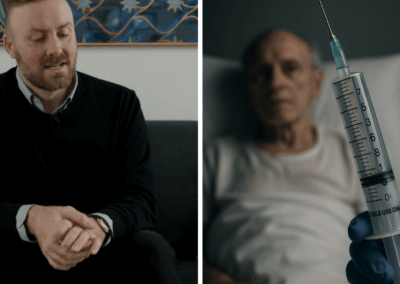A review of data from countries that have made euthanasia and assisted suicide legal suggests that overall suicide numbers have increased in countries following the introduction of euthanasia and assisted suicide (EAS).
The Anscombe Bioethics Centre in Oxford examined data from states in the US and countries in Europe that have made euthanasia and assisted suicide legal, and have found that following the practice being made legal, there have been significant increases, not only in the number of people who end their lives through assisted suicide and euthanasia, but also increases in instances of non-assisted suicide.
Through examining assisted suicide and non-assisted suicide in the US, Professor Jones found “legalising PAS [physician assisted suicide] was associated with a 6.3% increase in total suicides (including assisted suicides). This effect was larger in the individuals older than 65 years (14.5%)”.
No evidence that legalising assisted suicide has a beneficial effect on suicide prevention
Professor David Albert Jones, who conducted the research, concluded “There is no evidence that legalisation of EAS [euthanasia and assisted suicide] would have a beneficial effect on suicide prevention. There is robust evidence, taken from different jurisdictions and using a variety of statistical methods, that the total number of self-initiated deaths rises significantly where EAS is legally available, and strong evidence that this has a greater impact on older women”.
“There is some evidence, less robust but by some measures statistically significant, that deaths by non-assisted suicide also increase. There is no evidence of a reduction in non-assisted suicide”.
Professor Jones also argued that euthanasia and assisted suicide contradicted the principle that every suicide is a tragedy saying “Even where it is legal EAS should not be advertised or encouraged. Above all, it should not be stated or implied that there is shame attached to living with disability or illness or in receiving help and support. It must never be implied that human dignity can only be recovered by a self-initiated death”.
One in five cite loneliness as a reason to want to die
In 2021, 10,064 people ended their lives by assisted suicide and euthanasia in Canada, an increase of over 32% from the previous year, accounting for 3.3% of all deaths in Canada.
According to the latest report on Medical Assistance in Dying from Health Canada, 17.3% of people also cited “isolation or loneliness” as a reason for wanting to die. In 35.7% of cases, patients believed that they were a “burden on family, friends or caregivers”.
Right To Life UK spokesperson Catherine Robinson said “This new research has found that overall suicide numbers have increased in countries following the introduction of euthanasia and assisted suicide.. This is presumably because legalising these practices helps create a culture in which death is seen as a solution to the hardships of life. But death is never a medical treatment. Instead, we should do all we can to alleviate those hardships and assist people to live their lives, not to end their lives”.












